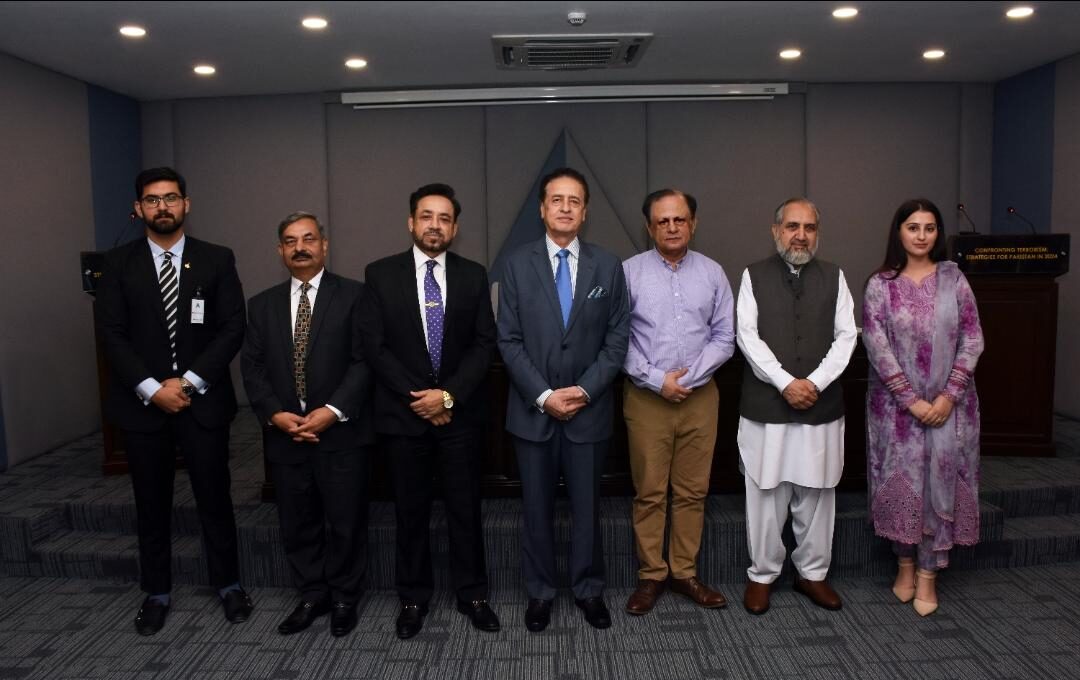The Centre for Aerospace & Security Studies (CASS), Lahore, hosted a seminar titled “Confronting Terrorism: Strategies for Pakistan in 2024” on Thursday, 23 May 2024. The event focused on examining the multifaceted challenges posed by terrorism to Pakistan’s national security and exploring effective strategies to combat this menace. In his introductory remarks Air Commodore Khalid Iqbal (Retd), Director at CASS Lahore, identified three streams of terrorism confronting Pakistan: anti-China Pakistan Economic Corridor (CPEC) disruptive assaults, sporadic activities of separatist terrorists, and ethno-sectarian clashes.
The keynote speaker, Dr Syed Kaleem Imam, former Federal Secretary and former Inspector General of Police, spoke about mapping Pakistan’s terrorism landscape and its impact on national security and development. He examined the origin, motivation, and impact of terrorism in the country, highlighting how it stems from both internal and external factors, including political, ideological, and religious motivations.
Dr Muhammad Feyyaz, an academic on counterterrorism, spoke about the need for countering terrorism through combative measures. He stated that terrorism is an enduring phenomenon, which requires a nuanced understanding through the identification of three interconnected factors: a rigid strategic mindset, a mismatch between the discourse surrounding terrorism and counterterrorism, and a lack of adequate attention to social sciences in analysing political violence.
Ambassador Syed Abrar Hussain, a former envoy to Afghanistan, underscored the need for bilateral and regional diplomatic engagement with neighbouring countries to mitigate terrorist threats. He proposed a three-pronged strategy: direct action against terrorists, addressing root causes, and diplomatic engagement.
In his concluding remarks, Air Marshal Asim Suleiman (Retd), President, CASS Lahore, stated that terrorism continues to impede Pakistan’s progress despite decades of efforts to counter it. He noted that the recent surge in terrorist attacks has affected both civilians and security personnel, besides fuelling sectarian strife. He said that external threats from hostile neighbouring states complicate the situation. The President stressed the need for a comprehensive strategy focused on national unity and proactive engagement with allies, alongside diplomatic efforts to prevent regional territories from becoming sanctuaries for terrorists.
The seminar highlighted the need for national harmony, unwavering resolve and ironclad political will for the across-the-board implementation of the rule of law to choke the terrorists financially and logistically. It was urged that flawless border management be ensured and informal monetary transactions be stopped.


